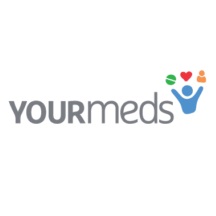"Medication Non-Adherence"
Age UK estimates that around 2 million people over 65 take at least eight different prescribed medications weekly, increasing to 1 in 4 people over the age of 85. Whilst the World Health Organisation (WHO) estimates that only around 50% of the medication is taken as prescribed, medication non-adherence remains a topic that is not spoken about, despite the vast expenditure by the NHS and Adult Social Care, making this a problem that is worthy of a solution.
The glooming reality of real costs and its impact on the economic burden.
The total expenditure on medicines in England by the NHS in 2020/21 was estimated to be £16.7 billion, of which:
- £9.42 billion was issued in primary care and dispensed in the community.
- £87.9 million prescribed in hospitals and dispensed in the community.
- £24.3 million prescribed by dentists and dispensed in the community.
- 1 x 15-minute medication visit within the community costs, on average, £8,400 a year.
What is medication adherence?
Adherence is whether the patient takes the correct amount of medication at the correct time by themselves. In adherence, the patient is given control and is empowered. As a result, the patient takes ownership of taking their medication, but in practice, the World Health Organisation and NHS recognise that only 50% of all medication is taken as intended. The pandemic showed us the power of using the free social capital of family and friends around an individual to support independence.
How non-adherence affects the patient?
Improving medication adherence not only increases health benefits and treatment outcomes, it also allows individuals to remain independent in their own homes for longer, have better life choices, and reduce the impact on carer fatigue.
Failure to adhere will limit the given medication's benefit, resulting in health decline, increased hospitalisation and need for care.
Opportunity to improve
The white paper "People at the heart of Care" focuses on person-centred care, enabling people to remain independent in their own homes. The ICS's are supporting adult social care to bring Digital Social Care Records into 80% of all care homes by March 2024. Using technology and integrating the data into the care records would provide a game changer in how people are supported to stay independent in their own homes, providing a 360° overview of how people manage their long-term conditions.
Half of the people over 80 will fall once a year. The use of acoustic fall sensors is also a priority, with ambitious plans to bring this technology into the homes of 13,000 people by 2024, but how do you know if someone is at risk of a fall if they take their nighttime medication that often has a sedative in the morning?
Let's talk about virtual wards for a moment; the NHS sees virtual wards as one of its key priorities to help tackle the backlog caused by the pandemic. One of the first things that happens when a person goes into the hospital is that the medical team manages their medication. However, using technology to support medication in a virtual ward at home is missing from the planned roll-out of virtual wards.
YOURmeds groundbreaking digital innovative solution
The National Institute of Health and Care Excellence (NICE) recognise that YOURmeds is the "first digital medication dosage system that allows real-time monitoring of medication adherence."
YOURmeds solution brings the use of mobile technology, the use of a patient's support network and real-time data to increase a patient's adherence. On average YOURmeds users have an adherence rate of 84.4%.
Our 21st-century way of managing medication takes the basic community pack and turns it into a simple, easy, and effective system that helps people of all ages and incomes to take the right medication at the right time.
You can now know exactly which medications have been taken and when. Patients' supporters are informed when the wrong medication is taken through the YOURmeds supporter app so that they can intervene and take the appropriate action. 1 in 4 of our adherent rounds is due to a supporter nudge.
The joining up of health and social care through the ICS's provides a once-in-a-lifetime opportunity to finally address medication management, the elephant in the room!

Author:
YOURmeds, HETT 2022 exhibitor
YOURmeds, a smart medication support solution, enables patients to take the right medicine at the right time. Supporters and monitoring centres can ‘nudge’ the patient in real time, increasing adherence to over 80%, improving health outcomes; data obtained can lead to reduced costs in health and social care.
%20(1).png?width=500&height=58&name=HETT%20insights%20logo%20RGB-04%20(1)%20(1).png)
